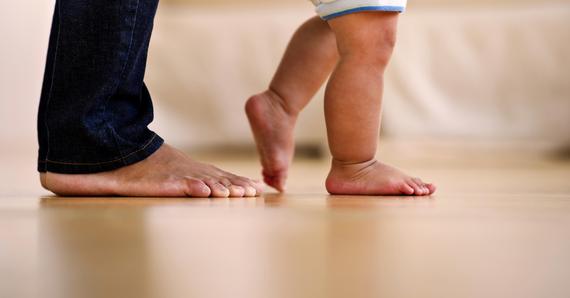As a father, I know today's dads are playing a bigger role in our kids' lives at every age. We're not just at the soccer games and class plays when our kids are school-age; we're on the front lines of diaper duty, midnight feedings, and full-time fathering when they're still infants and toddlers.
So, this Father's Day, along with my CDC colleagues and partners in the Up and Away and Out of Sight campaign, I want to share information all dads need to know when it comes to medicine safety for our youngest kids.
First, the facts:
- It was a surprise to me when I found that, each year, approximately 60,000 young children are brought to emergency rooms for medication overdoses. That's more kids under age five brought to emergency rooms for medication overdoses than for car crash injuries.*
Though they don't like it, we always buckle our kids into their car seats to keep them safe. You can also keep them safe by following these tips to prevent medication overdoses--and each one is simpler than strapping a squirming 3-year-old into a car seat.
- Don't use spoons. Kitchen spoons are NOT for giving medicine to kids. Why not? First, silverware comes in all shapes and sizes and is not accurate for measuring medicine. Also, I know from experience that it's easy to accidentally grab a tablespoon instead of a teaspoon, and if you do when you give your toddler medicine, you probably just gave them three times more medicine than you should have. Instead, always use the dosing cup or dosing syringe that comes with the medicine to avoid a making a mistake.
Be a safety hero by making these changes in your home now and sharing these facts with others who care for your kids. Hopefully, a medication overdose never happens to one of your children. On this Father's Day and always, keep your children safe and keep all medicines out of their reach.
Call Poison Help right away if you think your child might have gotten into medicine. To learn more about safe medicine storage, visit UpandAway.org.
* Budnitz DS, Salis S. Preventing medication overdoses in young children: an opportunity for harm elimination. Pediatrics. 2011;127:e1597-9. http://pediatrics.aappublications.org/content/pediatrics/127/6/e1597.full.pdf
